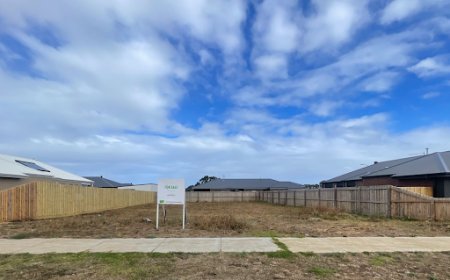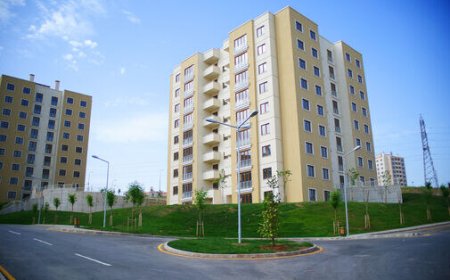How to Attend East Boston's Poetry Readings
How to Attend East Boston's Poetry Readings East Boston, a vibrant neighborhood nestled along the harbor just northeast of downtown Boston, has long been a quiet crucible of artistic expression. While often overshadowed by the literary scenes of Cambridge or the North End, East Boston’s poetry readings offer an intimate, authentic, and deeply community-driven experience that reflects the neighborh
How to Attend East Boston's Poetry Readings
East Boston, a vibrant neighborhood nestled along the harbor just northeast of downtown Boston, has long been a quiet crucible of artistic expression. While often overshadowed by the literary scenes of Cambridge or the North End, East Boston’s poetry readings offer an intimate, authentic, and deeply community-driven experience that reflects the neighborhood’s multicultural soul. These gatherings—held in libraries, community centers, cafes, and even backyard porches—are not merely performances; they are acts of belonging, resistance, and remembrance. For newcomers, visitors, or longtime residents seeking connection, attending these readings is more than a cultural activity—it’s a way to listen to the heartbeat of a neighborhood that speaks in verse.
This guide is designed to help you navigate, engage with, and fully embrace East Boston’s poetry reading scene. Whether you’re a seasoned poetry lover, a first-time attendee, or someone looking to reconnect with your creative side, this tutorial will walk you through every practical step, from finding events to participating meaningfully. You’ll learn how to locate readings, understand the unwritten rules of attendance, connect with local poets, and become part of a tradition that values voice over volume, authenticity over polish.
Unlike formal literary events in academic or commercial venues, East Boston’s poetry readings thrive on accessibility, inclusivity, and emotional resonance. There are no velvet ropes, no ticket scalpers, and no pretense. What you’ll find instead are open mics in Spanish and English, elders reciting memories of the old country, teenagers sharing their first poems, and neighbors reading work inspired by the wharves, the T, and the smell of fresh empanadas from the corner bakery. This is poetry as lived experience—and attending these events is one of the most profound ways to understand East Boston beyond its postcards.
Step-by-Step Guide
Step 1: Identify Where Poetry Readings Are Held
The first step to attending a poetry reading in East Boston is knowing where to look. Unlike larger cities with centralized arts calendars, East Boston’s literary events are often decentralized and community-organized. Begin by identifying the most consistent venues:
- East Boston Public Library – The main branch on Bremen Street hosts monthly open mics and themed readings, often in partnership with local schools and nonprofits.
- Community Health Centers – The East Boston Neighborhood Health Center and others occasionally host “Healing Through Poetry” sessions, especially during Mental Health Awareness Month.
- Cafés and Bookstores – Small businesses like La Cosecha and Book Ends (a mobile bookstore) regularly feature poets, particularly on weekend evenings.
- Churches and Community Halls – St. Leonard’s Church and the East Boston Community Center often open their doors for bilingual readings, especially around cultural holidays like Día de los Muertos or Puerto Rican Day.
- Outdoor Spaces – During warmer months, poetry readings pop up at Piers Park, the East Boston Greenway, and even on the benches near the ferry terminal.
These locations are not always advertised on major event platforms. Many are organized by local artists, teachers, or volunteers who rely on word-of-mouth and physical flyers. Keep an eye out for hand-painted posters taped to lampposts, community bulletin boards near the bodega, or chalk messages on sidewalks near the T station.
Step 2: Find Upcoming Events
Once you know the venues, the next step is discovering when events are scheduled. Start with these reliable sources:
- East Boston Library Events Calendar – Visit the Boston Public Library website and filter for “East Boston” events. Poetry readings are listed under “Literature & Arts.”
- Local Facebook Groups – Search for “East Boston Arts & Culture,” “Eastie Poets Collective,” or “East Boston Events.” These groups are active, responsive, and often post event details 24–48 hours in advance.
- Instagram and TikTok – Follow hashtags like
EastiePoetry, #EastBostonPoets, and #PoetryInEastie. Many poets post short video teasers of upcoming readings, sometimes even live-streaming snippets to build anticipation.
- Word-of-Mouth – Talk to librarians, baristas, and local shop owners. They often know about readings before they’re posted online. Ask: “Any poetry happening this week?”
- Community Newsletters – Subscribe to newsletters from the East Boston Neighborhood Development Corporation (EBNDC) or the East Boston Main Streets Initiative. They include cultural calendars.
Pro Tip: Events are often announced with minimal notice—sometimes just a day or two ahead. If you’re serious about attending, check these sources at least twice a week. Many poets prefer spontaneity, and last-minute announcements are part of the charm.
Step 3: Plan Your Visit
Attending a poetry reading in East Boston requires a bit of logistical planning—but not much. Here’s how to prepare:
- Check the Time and Date – Most readings occur on weekday evenings (6:30–8:30 PM) or Sunday afternoons (3:00–5:00 PM). Avoid assuming they’re on weekends—many are held during the workweek to accommodate working families.
- Confirm Accessibility – Call ahead or check social media for accessibility details. Some venues have elevators; others are on the second floor without one. If you need accommodations, reach out to the organizer directly. Most are happy to help.
- Transportation – The Blue Line subway (East Boston Station) is the most reliable way to get there. If you’re driving, parking is limited but available on side streets. Consider biking—the Greenway connects directly to many venues.
- Bring a Notebook – Even if you don’t plan to read, bringing a small notebook helps you capture lines that move you. Many attendees do this, and it’s seen as a sign of respect.
- Arrive Early – Doors open 15–20 minutes before the start. Arriving early ensures you get a good seat, especially at popular events. It also gives you time to chat with others and get a feel for the room.
Step 4: Understand the Format
Poetry readings in East Boston vary in structure, but most follow a familiar pattern:
- Opening Welcome – A host (often a local poet or teacher) greets the audience, thanks sponsors or partners, and introduces the first reader.
- Featured Reader – One or two established local poets read for 10–15 minutes each. Their work is often thematically connected to the event’s focus (e.g., immigration, memory, the sea).
- Open Mic – This is the heart of the event. Anyone in the audience can sign up to read. Usually, you write your name on a list at the back of the room. Each reader gets 3–5 minutes.
- Intermission – A short break for tea, coffee, or snacks. This is also when conversations begin.
- Closing – The host thanks everyone, announces the next event, and sometimes invites people to join a mailing list or volunteer.
Some events are silent—no applause after each poem. Others encourage soft clapping or “ahs” and “mmms.” Watch others. When in doubt, a quiet nod or smile after a reading is universally appreciated.
Step 5: Prepare to Participate (Optional but Encouraged)
One of the most powerful aspects of East Boston’s poetry scene is its invitation to participate. You don’t need to be published. You don’t need to be “good.” You just need to have something to say.
If you want to read during the open mic:
- Bring 1–2 Poems – Keep them short (under 3 minutes). Print them on a single sheet or write them in your notebook. Many poets read from memory, but having a copy helps if you get nervous.
- Sign Up Early – The sign-up sheet fills quickly. Don’t wait until the last minute.
- Introduce Yourself – When called, say your name and maybe one line about why you wrote the piece. “This is for my abuela,” or “This is what I felt watching the sunrise over the harbor last week.”
- Don’t Apologize – Never say, “I’m not a real poet,” or “This isn’t very good.” Your voice matters. The audience is there to listen, not judge.
Many first-time readers are moved to tears—not because their poem is perfect, but because they were heard. That’s the magic of East Boston’s readings.
Step 6: Connect After the Event
The real community-building happens after the reading. Don’t rush out.
- Stay for Coffee – Most events offer free tea or coffee. This is your chance to talk to poets, organizers, and fellow attendees.
- Ask Questions – “Where did you write this?” “Is this part of a collection?” “Do you have a newsletter?” Most poets love to talk about their work.
- Exchange Contact Info – If someone inspires you, ask if they’re on Instagram or have a website. Many poets share their work online but rarely post event details.
- Volunteer – If you’re moved by the experience, offer to help with next month’s event. Set up chairs. Take photos. Distribute flyers. It’s a meaningful way to deepen your connection.
Best Practices
Attending poetry readings isn’t just about showing up—it’s about showing up with intention. Here are the unwritten rules and best practices that will help you become a respected and welcome member of East Boston’s poetry community.
Respect the Space
These events are held in shared, often modest spaces. Keep your voice low before and after readings. Silence your phone completely. Avoid taking photos during performances unless explicitly permitted. Many poets share deeply personal material, and a camera can feel invasive.
Listen with Your Whole Body
Don’t just hear the words—feel them. Make eye contact. Nod. Lean in slightly. These nonverbal cues mean more than applause. Poets in East Boston often say they can tell who’s truly listening by the stillness in the room.
Don’t Interrupt or Comment During Readings
Even if a line moves you to tears, wait until the end. Interruptions—though well-intentioned—disrupt the rhythm and sacredness of the moment. Save your reactions for afterward.
Be Inclusive
East Boston is home to speakers of Spanish, Portuguese, Haitian Creole, Arabic, and more. Many readings are bilingual or multilingual. Don’t assume everyone speaks English. If you don’t understand a line, don’t ask for a translation mid-event. Wait until afterward and ask respectfully.
Support Local
Buy a book from a poet if one is available. Tip the barista who serves the coffee. Donate $5 to the jar on the table. These events are rarely funded by grants or institutions. They survive because of small acts of generosity.
Bring a Friend
Poetry is more powerful in community. Bring someone who’s never been to a reading. Guide them gently. Explain what to expect. Your presence can be the reason someone discovers their own voice.
Don’t Perform, Just Be
There’s no pressure to be witty, profound, or polished. If you’re nervous, say so. If you’re unsure, ask for help. The community will meet you where you are. This isn’t a competition. It’s a circle.
Follow Up
If a poet moved you, send them a message a day later: “Your poem about the ferry reminded me of my father. Thank you.” Simple. Honest. Powerful. These notes often become cherished keepsakes for poets who rarely receive feedback.
Tools and Resources
While East Boston’s poetry scene thrives on human connection, a few digital and physical tools can make your experience smoother and more meaningful.
Digital Tools
- Google Calendar – Create a dedicated calendar for “East Boston Poetry Events.” Add dates as you find them. Set reminders 24 hours in advance.
- Notion or Google Keep – Use these to jot down favorite lines from readings, poet names, and venues. Organize by theme: “Immigration,” “Memory,” “Nature,” etc.
- Instagram – Follow local poets and collectives. Many post audio clips of their work. Search hashtags:
EastiePoetry, #PoetryInBoston, #EastBostonReadings.
- Spotify and Apple Podcasts – Search for “Boston Poetry” or “East Boston Spoken Word.” Some local poets have released recordings of past readings.
- Eventbrite and Meetup – While less common here than in other neighborhoods, occasional events are listed here. Use them as a supplement, not a primary source.
Physical Resources
- Small Notebook and Pen – Essential for capturing lines, names, and ideas. A Moleskine or even a $2 spiral notebook works.
- Reusable Cup – Many venues serve coffee or tea. Bringing your own cup reduces waste and shows environmental awareness.
- Local Map of East Boston – Print or download a map highlighting venues like the library, Piers Park, and key cafés. Mark them as you attend.
- Small Cash Envelope – Keep $5–$10 in small bills for donations. Many events pass a jar. Your contribution helps keep the lights on.
Recommended Reading
Before attending your first reading, consider familiarizing yourself with voices from the region:
- How to Be a Poet by Wendell Berry – A gentle reminder that poetry is rooted in attention, not performance.
- My Country, My Love by Julia Alvarez – A collection that speaks to the immigrant experience, resonant with East Boston’s demographics.
- City of Islands by Kali Fajardo-Anstine – Though set in Denver, her lyrical depictions of family and place mirror East Boston’s spirit.
- East Boston: A History by Josephine O’Donnell – Provides cultural context for the neighborhood’s evolution and its relationship to art.
- Latino Poetry: A Norton Anthology – A broad collection that includes poets of Caribbean, Central, and South American descent, many of whom have ties to East Boston.
Local Organizations to Know
- East Boston Neighborhood Health Center – Arts & Wellness Program – Offers monthly poetry workshops for residents of all ages.
- East Boston Main Streets – Coordinates cultural events, including poetry nights tied to neighborhood festivals.
- East Boston Library Literary Committee – Organizes the most consistent reading series. Contact them via email for volunteer opportunities.
- WriteBoston – A nonprofit that partners with local schools and brings student poets to community events.
- La Cosecha Cultural Center – A grassroots hub for Latinx artists, often hosting bilingual poetry nights.
Real Examples
To ground this guide in lived experience, here are three real examples of poetry readings that have taken place in East Boston—each illustrating a different facet of the scene.
Example 1: “Voices of the Harbor” – East Boston Public Library, March 2023
On a rainy Wednesday evening, 40 people gathered in the library’s small community room. The theme: “Water, Loss, and Memory.” Featured reader Maria Santos, a retired nurse and Cuban immigrant, read a poem about her journey across the Florida Straits at age 17. She didn’t have a script—she spoke from memory, her voice trembling slightly, then steadying. Afterward, a 12-year-old boy named Javier stood up and read a poem he wrote about his father’s fishing boat, which had been sold to pay medical bills. He didn’t finish his last line—he broke into tears. The room didn’t clap. They sat quietly. Then, one by one, people whispered, “Thank you.”
The librarian later told a reporter: “That night, poetry wasn’t art. It was healing.”
Example 2: “Bilingual Open Mic at La Cosecha” – June 2023
On a warm Saturday afternoon, a crowd of 60 spilled out of the small storefront café. The event was bilingual—half the readers spoke in Spanish, half in English. A poet named Carlos read a piece in Spanish about his son’s first day of school, then a woman named Tanya responded in English with a poem about her daughter learning Spanish from her abuela. The audience didn’t need translations. They felt the rhythm. Someone passed around homemade empanadas. A teenager played guitar between sets. No one was paid. No one was billed. It was pure, unmediated community.
Example 3: “Poetry on the Greenway” – September 2023
On the autumn equinox, a group of poets gathered on the East Boston Greenway near the bike path. No chairs. No mic. Just a circle of people under the trees. One poet read a haiku about the first frost on the harbor. Another recited a free verse piece about the sound of the T train echoing under the water. A man in a wheelchair, who rarely left his apartment, was wheeled over by his neighbor and read a poem he’d written over 15 years. He hadn’t shared it with anyone. When he finished, the silence lasted nearly a full minute. Then, one woman said, “That’s the most beautiful thing I’ve ever heard.”
That night, the poem was posted on Instagram. Within 48 hours, it had been shared 300 times. The man’s daughter, who lived in Florida, saw it. She called him for the first time in two years.
These are not isolated incidents. They are the heartbeat of East Boston’s poetry scene: raw, unpolished, and profoundly human.
FAQs
Do I need to be a poet to attend?
No. You don’t need to write poetry to attend. You only need to be willing to listen. Many attendees are students, retirees, parents, or people who simply enjoy quiet, meaningful evenings. Your presence matters—even if you never speak.
Are these events free?
Yes. All poetry readings in East Boston are free to attend. Donations are welcome but never required. There are no tickets, no cover charges, and no membership fees.
Can I bring my kids?
Absolutely. Many events are family-friendly. Children are welcome, though it’s best to prepare them for quiet behavior. Some readings even have special “Youth Poetry” segments where kids can read their own work.
What if I don’t speak English well?
You are still welcome. Many readings are bilingual or multilingual. You can attend as a listener. You can bring someone to translate. You can even read in your own language. The community values voice over fluency.
How do I find out about the next reading if I miss one?
Check the East Boston Library calendar weekly. Join the “Eastie Poets Collective” Facebook group. Ask at the library front desk or your favorite local café. Most organizers are happy to add you to a mailing list if you ask.
Can I submit my poem to be read?
Yes—during the open mic. There’s no selection process. You sign up on the spot. No prior approval is needed. If you want to be a featured reader, contact the organizer in advance via email or social media. They often welcome new voices.
Is there parking nearby?
Parking is limited. Most attendees take the Blue Line. If you drive, street parking is available on side streets like Meridian Street or Bremen Street, but be sure to read signs carefully. Some areas are permit-only after 6 PM.
What if I’m shy or nervous?
You’re not alone. Most first-time attendees feel that way. Sit in the back. Listen. You don’t have to speak. But if you want to, just raise your hand when the host asks for volunteers. Everyone there has been nervous once.
Can I record the readings?
Only with explicit permission from the poet and organizer. Many poems are personal, unpublished, or improvised. Recording without consent is considered disrespectful. Take notes instead.
Are there readings during winter?
Yes. While outdoor readings pause in cold months, indoor events continue year-round. The library, community centers, and cafés host readings even in January and February. The winter readings often feel even more intimate—like a warm circle in the dark.
Conclusion
Attending East Boston’s poetry readings is not a passive activity. It is an act of presence, of listening, of saying, “I see you. I hear you. You matter.” In a world that often values speed over silence, performance over truth, and likes over meaning, these gatherings are radical in their simplicity. They ask nothing of you but your attention. And in return, they offer something rare: the unfiltered sound of human souls speaking their truth.
East Boston’s poetry scene doesn’t need grand stages or publishing deals. It thrives in the quiet corners of libraries, the steam of coffee cups, the pause between breaths after a line is spoken. It is poetry as neighborhood, poetry as home.
If you’ve read this far, you’re already part of it. You’ve taken the first step—not by signing up, but by caring enough to learn. Now, go. Find a flyer. Walk into a room. Sit down. Listen. And if you feel moved, speak. Even if your voice shakes. Even if your poem is only three lines long. Even if you’ve never written a poem before.
Because in East Boston, poetry isn’t reserved for the chosen few. It belongs to everyone who dares to say what’s true.

































